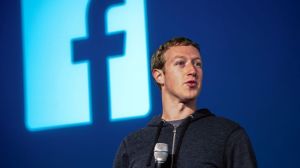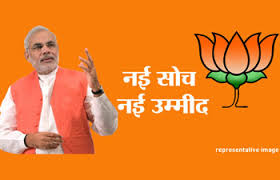Facebook has been aggressively pushing its Free basics campaign in order to convince users to send mails to TRAI in support of the Free Basics by Facebook program. In the process, it has spent crores of rupees to drive its point using terms like ‘digital equality’ and receive the support it expects in order for TRAI to formally recognise zero-rating services.
However, there is one element missing from all of Facebook’ campaigns (including a 4-5 full page ad marketing Facebook’s in the leading newspapers across the country) and that is the actual details and the agenda of the Facebook’s campaign. It seems Facebook is using its rich coffers to mislead the general public into believing that Free Basics is indeed a genuine initiative to connect people online and this is a ‘humanitarian’ initiative. (Spending millions in marketing on a ‘noble’ initiative from a company that is listed and has shareholders to answer to, seriously?). This is a clear example of Facebook abusing its market dominance and power to drive its vested interests and blinding all possible criticism for its activities. Why else would Facebook invest so heavily in a campaign using shareholder money. On the surface, it clearly appears that Facebook has vested financial and monopolistic interests in positioning ‘Free Basics’ as a wonder attempt to connect billions of Indians online who can’t afford it. It amounts to exploitation not just of the untapped market but also of the users who are heavily dependant on Facebook for their daily dose of communication and networking.
There are key things that you should attend to before blindly clicking on that notification on the FB wall that asks you to send a mail to TRAI wth language that is misleading and camouflages the real intentions.
- Facebook has rented hundreds of hoardings and taken up a majority of newspaper space to silence any criticism that speaks the truth about Free Basics. It has also ‘accidentally’ asked US users to support the cause. Is anyone of us ready to believe that this was ‘accidental’ ?
- The language of the campaign makes you believe as if TRAI and the government is the villain and your vote will ensure that the poor have access to ‘basic internet’. in fact, it is the TRAI that has floated a consultation paper to engage all stakeholders before taking any decision on net neutrality.
- The communication itself masks the truth about the zero-rating system and the invite to send a mail to TRAI itself does not contain the terms and conditions that one must be aware of.
- No disclaimer has been declared in any advertisement that asks users to assess the pros and cons carefully before offering any kind of support.
- ‘Free Basics by Facebook ultimately uses the brand name Facebook in all forms of marketing communication. Facebook ultimately has a profit motive that leads us to question the integrity of this campaign. Why didn’t Zuckerberg choose to remove Facebook from the entire equation if ‘access to internet by all humans’ was the sole objective.
There are 10 things you should know about ‘Free Basics’ before making an informed choice.
1)One corporation controlling a large part of the internet
It is ultimately Facebook who is acting as a gatekeeper to these services. It amounts to virtual monopoly of a market where customers, unfortunately will not be in a position to speak for their own rights. These customers will be solely defendant on Facebook for access to the internet. Even if Facebook had very benevolent intentions, would you want to risk a disadvantaged market’s freedom being restricted by someone like Facebook?
2)Facebook gets to decide who is in and who’s out
Mark Zuckerberg and his trusted team gets to decide who gets in or who walks out on the basis of some very arbitrary and vague guidelines. No stakeholders, independent experts or even government agencies will be involved in the entire process.
3)VOIP, video, photo, etc not allowed – essentially limiting competition in critical growth areas
This clearly amounts to stifling innovation and competition from small or emerging players. We have to remember that Facebook is a social networking site and limiting photo size, videos or even VOIP access means that a number of competitors or rivals will stand to lose. Facebook also owns WhatsApp that has recently enabled a voice calling feature. Millions of new users on the ‘Free Basics’ platform will want to connect with their loved ones and this clause ensures restrictions for a service that so many of us rely on for our ‘social’ needs. It essentially means that Facebook will have full rights in ascertaining as to what kind of services are needed by the masses leading to many innovators being rejected who are unable to meet their criterion. Surely, Facebook wouldn’t like another Facebook to thrive in it’s own ‘homegrown backyard’.
4)Tagging in with a network operator means signing up for that service
Free Basics can only be accessed through network operators who have tied up with Facebook to offer this service. So, essentially you will be compelled to join that particular network (Reliance Infocom for now) to enable access. This amounts to giving an ultimatum to all operators : fall in line or you will lose out on your customer base. The participating operators, already reeling under heavy competition , would then look to milk profits from the millions who have signed up under the promise of a free internet.
5)No definition about the scope of Facebook’s feature availability on free basics
Facebook has spoken very little about the extent of Facebook’s own availability on the platform. If the initiative was aligned with a non profit motive, why would a profit oriented service be included and raise serious conflicts of interest?
6)Against the very concept of net neutrality
The fundamental principles of net neutrality states that all data should be treated equally without any discrimination. This zero-rating service aims to provide a channel of access to a select group of developers leaving the majority of services out in the cold. For example, if CNN tomorrow signs up for this Free Basics program and others don’t, users on ‘Free Basics’ will be unable to access BBC or even NY Times. Internet, even according to Tim Berners Lee, the internet’s founder should be open and have unrestricted access. If it is restricted, it is not full internet.
7)All data will be available with Facebook which is a dangerous thing
One should remember that this program has serious privacy implications. Facebook, because of ‘proxying’ all sites through the internet.org platform, will have full access to all your behaviour and usage. The terms explicitly states that “When people use the Free Basics mobile website, information is temporarily decrypted on our secure servers to ensure proper functionality of the services and to avoid unexpected charges to people”
Facebook shall obviously claim that this data will not be misused but how many of us are ready to believe it considering Facebook is solely dependant on data for its success as a business model.
8)A listed MNC will ultimately be about vested financial interests in the long run
Let’s not forget that Facebook is worth approx. $297B and has to look for new avenues for growth and profits. It cannot be deemed naive enough to let go of it’s profits in order to serve the world without any benefit in return. This untapped market will have the potential to open new sources of revenue and advertisements as these users will eventually rely on Facebook and may be some day, upgrade to a full fledged internet service ultimately benefiting Facebook as a group (WhatsApp, Facebook, FB messenger, Instagram amongst others)
9)No clarity on the future role of free basics – it could be monetised just with a short notice
Facebook’s own guidelines offer no clarity on the purpose and role of Free Basics in the near future raising doubts on the ‘actual’ mission of the platform. To enable trust, it could have categorically stated the guiding principles and scope of Free Basics. Instead the terms state the following:
“We may update these terms from time to time as the Free Basics Platform evolves. Unless we make a change to the above terms for legal or administrative reasons, or to correct an inaccurate statement, we will provide you with seven (7) days advance notice (for example, by posting the change here) of the updated terms. Your continued participation as a developer on the Free Basics Platform following changes to the terms constitutes your acceptance of our amended terms.”
Essentially, once it reaches a critical base, there is a potential for the terms to be modified to suit certain interests. It could be monetised through revenue sources like advertisements, royalties on traffic to sites etc.
10)Independent innovators will be stifled by the might of Facebook’s influence and domination
New age entrepreneurs and innovators are still looking for creative ways to access a majority of the human population who still don’t have access to the internet. It is estimated that only 40% of the world is connected to the internet with India having a low penetration rate of around 20%. (It is also growing at the highest rate). This offers a plethora of opportunities as well as challenges to the to tech entrepreneurs looking to reach out to the next billion. Such platforms will ensure that anyone who doesn’t adhere to Facebook’s policies or is seen as direct threat to Facebook or its group companies shall be kept out using some nuances in the agreement or the other. This will have the tendency to stifle free and fair competition and will ensure that those with deep pockets ultimately win the game. This is against the very basic rules of capitalism and shall gave an unfair advantage to Facebook and its partners.
I urge you to read both sides of the argument to make an informed choice before a word with the TRAI. Facebook has been creatively designing its campaigns and abusing its user base to manipulate a majority of us, but lets hope that truth and wisdom will prevail, and the internet will be free from restrictions and open to all, irrespective of the income group you belong to. Internet access to all is a challenge but we shouldn’t let one corporation take advantage of our ignorance and benefit stealthily out of it.
Facebook developer agreement (the devil is in the details) : https://developers.facebook.com/docs/internet-org/participation-guidelines
Opposing joint action group :http://www.savetheinternet.in.
This should further convince you about the perils of the ‘Free Basics’ program. I sincerely urge you to support this action group and have your voice heard too, so that the power of democracy can defeat the vested interests of a few.
From one net neutrality supporter to the other.
Saurav Dugar
Update: Even IIT and IISc faculty members have signed a petition against Free Basics. More details in the link below:








